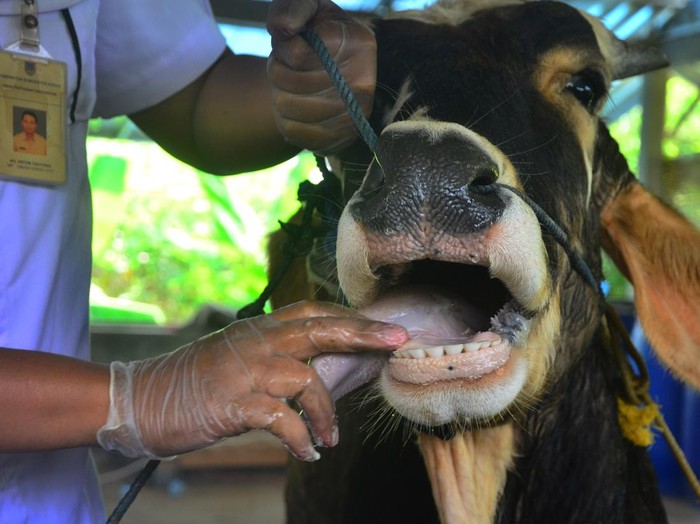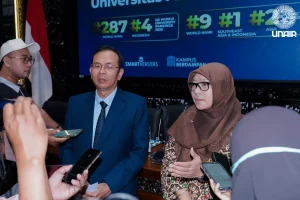UNAIR NEWS –Foot and mouth disease (PMK) in livestock is becoming an epidemic in Indonesia. The impact of the epidemic has affected the people’s economy.
It is in line with the presentation of Master of Health Economics Study Program Coordinator UNAIR Postgraduate School, Dr. Ni Made Sukartini SE MSi MIDEC. According to her, one of the sectors affected is the investment in children’s education.
“Because looking at people in the village, they usually have livestock for their children’s educational expenses later. With this PMK, the sale or production of livestock will be disrupted. The selling value of livestock can be up to tens of millions, so it is expected to be enough to finance their children’s education,” she said at the event entitled Can Indonesia be Free of PMK? Let’s Learn Sustainable Livestock Management by UNAIR Postgraduate School, Friday, May 27, 2022.
Therefore, if this condition continues, it will disrupt education investment decisions. The dropout rate will increase due to this PMK. So, PMK does disrupt not only large-scale businesses but also small-scale businesses.
Impact ahead of Eid ul Adha
Basically, the economic aspect is not only from the production side but also from the consumption side. Livestock consumption, especially cows and goats, will increase ahead of Eid al-Adha, and the public’s demand for them will also be disrupted.
“I understand that mosques in the city of Surabaya usually demand dozens of sacrificial animals. If then the provision of these sacrificial animals does not run smoothly, then the need or consumption will also be hampered. When the demand for animals is high but production is limited, prices can soar, “Dr Made.
If this condition continues, the demand for sacrificial animals may decrease. Furthermore, it is feared that there will be (alternative steps) to meet market demand.
“What’s scary is that there will be fraudulent ways of trading,” added Dr Made.

Disrupting protein needs
Beef and red meat are the main sources of protein. Many people really need it.
Disturbances in the distribution of meat can occur within the household. Protein needs will be replaced with other sources such as chicken meat, eggs, fish, and others. However, these substitute proteins may also become more expensive due to the shift in people’s consumption.
“This is an economic aftereffect. The prices of materials that used to be normal can also go up. A further impact is that favorite foods such as meatballs, grilled ribs, and others can also disappear,” said Dr Made.
Author: Fauzia Gadis Widyanti
Editor: Feri Fenoria









